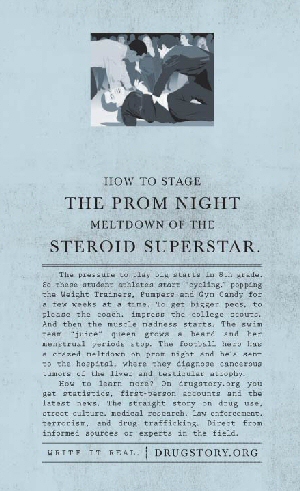The Government Accountability Office (GAO) has found that the $1.4 billion anti-drug advertising campaign aimed at youth and managed by the Office of National Drug Control Policy (the drug czar's office, ONDCP) doesnât work. The title of the GAO report, "ONDCP Media Campaign: Contractor's National Evaluation Did Not Find That the Youth Anti-Drug Media Campaign Was Effective in Reducing Youth Drug Use, pretty much says it all.

The GAO study released last Friday evaluated Westat's evaluation of the ad campaign and found it credible. "GAOâs review of Westatâs evaluation reports and associated documentation leads to the conclusion that the evaluation provides credible evidence that the campaign was not effective in reducing youth drug use, either during the entire period of the campaign or during the period from 2002 to 2004 when the campaign was redirected and focused on marijuana use," GAO said in its executive summary.
ONDCP has, unsurprisingly, attacked the GAO report. Spokesman Tom Riley told USA Today the report is "irrelevant to us. It's based on ads from 2 ½ years ago, and they were effective, too. Drug use has been going down dramatically. Cutting the program now would imperil its progress."
Drug czar John Walters also complained that Westat wanted proof of an actual link between the ads and figures suggesting lower drug use among teens. "Establishing a causal relationship between exposure and outcomes is something major marketers rarely attempt because it is virtually impossible to do," Walters said in a letter. "This is one reason why the 'Truth' anti-tobacco advertising campaign, acclaimed as a successful initiative in view of the significant declines we've seen in teen smoking, did not claim to prove a causal relationship between campaign exposure and smoking outcomes, reporting instead that the campaign was associated with substantial declines in youth smoking."
Unlike Walters, Congress may want to see some sort of causal relationship between the ad campaign and drug use figures before it funds it for another year. The Bush administration wants another $120 million for fiscal year 2007, but the GAO said that absent a better plan from Walters, funding should be cut. Congress will consider the issue this fall.
This work by StoptheDrugWar.org is licensed under Creative Commons Attribution-ShareAlike 4.0 International
Add new comment